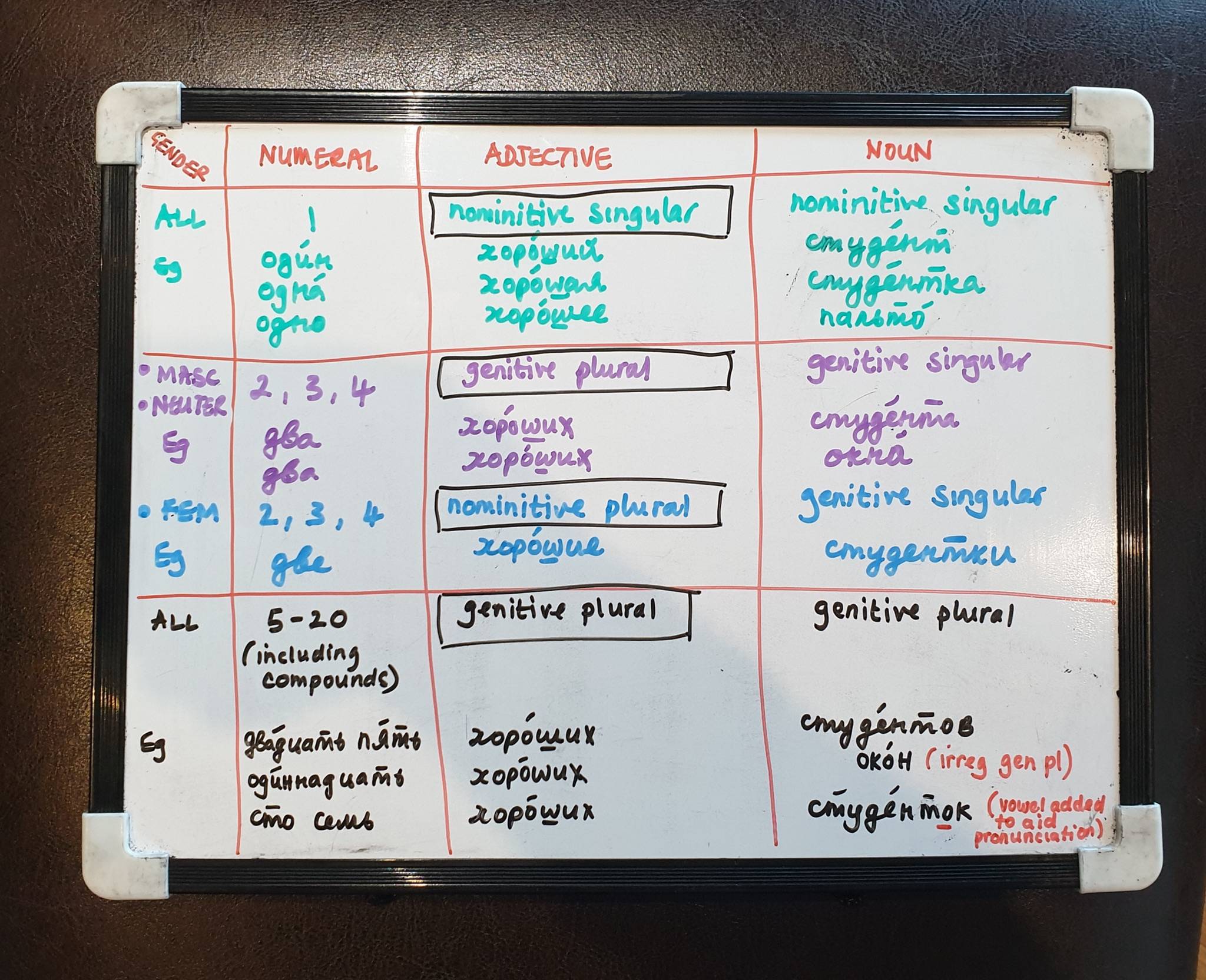In the nominative case, numbers ending with 1 govern the nominative/singular in the noun, numbers ending with 2-4 govern genitive/singular and all others genitive/plural. (That is the "easy" part, can be found in almost any Russian grammar)
There is also a rule for accusative case: (see grammar for numerals ending on 2-4)
In the accusative case, animate nouns become genitive plural and inanimate nouns remain in genitive singular.
I could not find any rule for the accusative after the other numerals (i.e. numerals not ending on 2-4) - do these follow the noun (accusative/singular after 1, genitive/plural for all others), do they follow the numeral (accusative/singular after 1, accusative/plural for the others), or is there another rule?
Again from the same grammar, a little bit is explained about adjectives:
While the noun in a nominative construction is in the genitive singular following два or две, an intervening adjective or adjectival participle will be in the genitive plural or nominative plural
If два is in nominative case, the adjective will be nominative plural when the noun is feminine
If два is in accusative case, the adjective will be nominative plural only if the noun is feminine inanimate
Again, the same question, what happens to adjectives behind the other numbers (that don't end on 2-4). Do they follow the noun, the numeral or is there also a similar special rule depending on gender?
